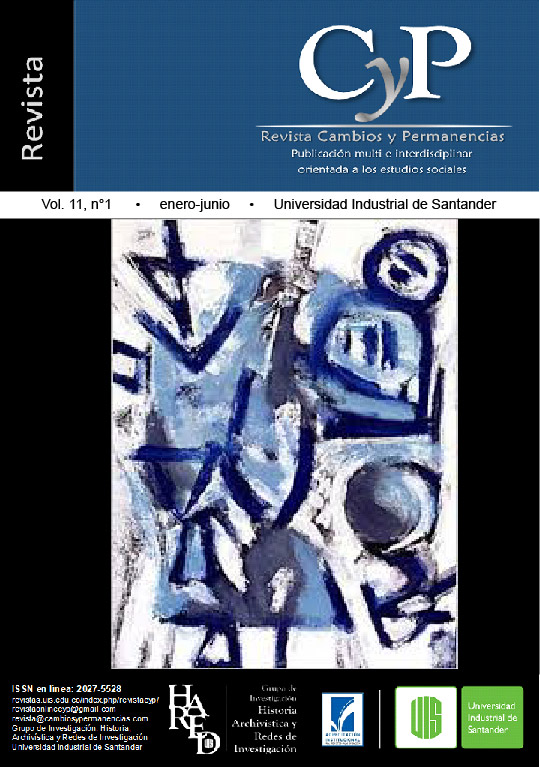The historical memory of the National Museum: construction of identity for a nation and oral history as an innovative tool
Published 2020-06-30
Keywords
- Historical memory,
- National Museum,
- Identity,
- Oral history,
- Post-agreement
How to Cite
Abstract
This paper aims to compile a series of reflections on how processes of transformation or creation of national identity are generated, consistent with the historical memory that the National Museum of Colombia works in an institutionalized and official manner. We understand the museum as a tool of social cohesion to safeguard the historical accounts of the country, so we can go developing some notes on what was found during a fieldwork in which interviews were conducted with people who work at the Museum as guards security, neighboring street vendors and passers-by, investigating what happens inside the building that fulfills the function of containing, collecting, organizing and communicating our history. All this without leaving aside that, to commemorate two hundred years of the creation of the museum, there is a reconfiguration that is in charge of restructuring the historical collection of the museum in function of remodeling, reorganizing and giving a clearer and more structured sense to the exhibition, in addition to appeal to the national dynamics of post-agreement that, circumstantially, demand historical and identity conditions in perspective to strengthen the idea of a social change in the nation, where oral history will acquire great importance.
Downloads
References
Fraser, R. (1993). La historia oral como historia desde abajo. Ayer: 79-92. Recuperado de http://www.memoriacastello.cat/docs/11112104.pdf
Halbwachs, M. (2004). Los marcos sociales de la memoria. Barcelona, España: Anthropos Editorial. Recuperado de ://archive.org/details/LosMarcosSocialesDeLaMemoria/page/n1
Hinojosa, R. (2013). La historia oral y sus aportaciones a la investigación educativa. México: Revista de Investigación educativa de la Rediech. Recuperado de http://www.rediech.org/inicio/images/k2/Red5-06x.pdf
Mariezkurrena, D. (S. F.). La historia oral como método de investigación histórica. En G. de Uztariz, (pp. 227-233).
Museo Nacional. (2015). Museo Nacional de Colombia: Un museo para todos. Bogotá, Colombia. Recuperado de http://www.museonacional.gov.co/elementosDifusion/2015/documentos/informe-mnc-2015.pdf
Pérez, B., y Amada, C. (2010). Hacer visible, hacerse visibles: la nación representada en las colecciones del museo. Colombia, 1880-1912. Memoria y sociedad, 14(28), 85-106. Recuperado de http://www.scielo.org.co/pdf/meso/v14n28/v14n28a06.pdf
Restrepo, E. (2007). Identidades: planteamientos teóricos y sugerencias metodológicas para su estudio. En: J. Pana. (pp. 25 - 35). Magdalena, Colombia: Universidad de Magdalena.
Roldán, M. (1999). Museo Nacional, fronteras de la identidad y el reto de la globalización. En Museo Nacional de Colombia, Museo, memoria y nación. Misión de los museos nacionales para los ciudadanos del futuro (pp. 99-117). Bogotá, Colombia: Museo Nacional de Colombia. Recuperado de http://www.museonacional.gov.co/el-museo/historia/sede-definitiva/Paginas/Sede%20definitiva.aspx
Souroujon, G. (2011). Reflexiones en torno a la relación entre memoria, identidad e imaginación. Andamios, 8(17), 233-257. Recuperado de http://www.scielo.org.mx/scielo.php?script=sci_arttext&pid=S1870-00632011000300011&lng=es&tlng=es.
Vanegas, M. (2016). Representaciones de la identidad nacional en el museo nacional de Colombia (Tesis de pregrado). Universidad Santo Tomás. Bogotá, Colombia. Recuperado de https://repository.usta.edu.co/bitstream/handle/11634/2441/Vanegaslaura2016.pdf?sequence=1

